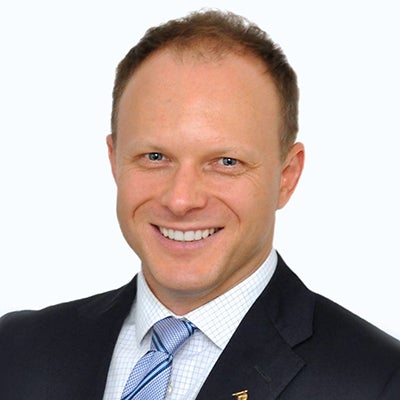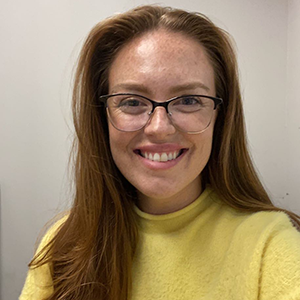The Clinical Education Manual contains policy and curriculum pertaining to clinical education within the Department of Physical Therapy at the University of Rhode Island.
Overview
The physical therapy department at URI is a 2.5-year, graduate, entry-level DPT degree program, accredited by the American Physical Therapy Association’s Commission on Accreditation of Physical Therapy in Education (CAPTE). The curriculum emphasizes clinical skill and research capability development through eight semesters of graduate study including didactic coursework, faculty-guided research projects, integrated part time clinicals and 3 full time clinical internships.
Mission
The Physical Therapy Program is dedicated to graduating doctors of physical therapy who are competent in providing physical therapy services to a variety of patient/client populations in Rhode Island and nationwide; who value the need for and use of evidence in practice and; who are committed to professional development through life-long learning; and are active contributors to their communities. The Program aspires to advance the theory and practice of physical therapy and provide service to the University, state, and nation. The Program works to promote the profession and interdisciplinary care by working closely with related disciplines.
Department Goals
The program faculty will:
Prepare doctors of physical therapy who are competent to provide physical therapy services to a variety of patient/client populations in Rhode Island and nationwide.
Prepare clinical scholars who find, critically interpret, and synthesize the professional literature so that scientific theory can be integrated with empirically derived clinical protocols in treatment progression for patients/clients under their care.
Prepare practitioners with high standards of professional conduct demonstrated through participation in the professional organization, local and campus volunteer service activities, and public health and/or legislative actions or functions.
Be actively involved in professional activities and in scholarship that contributes to the body of knowledge in physical therapy.
Consistent with the mission of a Land Grant university and professional association goals, the Department will facilitate the development of global citizens prepared to serve the College, University, the profession, state and nation.
Expected Student Outcomes
Upon completion of the program students will be prepared to demonstrate proficiency in the following areas:
Cognitive Functions
- Comprehend, integrate and analyze complex information from program content and apply it in laboratory, simulated and real patient situations.
- Effectively and efficiently utilize classroom, laboratory and experiential information to create interventions for real and simulated patients.
- Access, critique and analyze information from the professional literature, clinical experience and patient input to provide evidence-based interventions.
- Demonstrate the ability to utilize teaching and learning theory to appropriately educate patients, students, colleagues, peers, the general public/community groups and other health professionals.
- Assess movement dysfunction and efficiently develop an appropriate plan of care.
- Properly document physical therapy assessment and plan of care.
- Demonstrate legally and ethically sound leadership and management skills in patient care and other situations.
- Identify and analyze factors affecting the health of society, healthcare policy, access, delivery and quality and demonstrate the ability to create prevention and health programs to meet the needs of various patients and community populations in various settings.
- Utilize professional skills, knowledge and community resources to advocate for patients and members of the community.
- Consider and integrate knowledge and evidence about psychosocial interaction/factors, diversity and cultural competence in all aspects of practice.
Affective Functions
- Establish professional, respectful, empathic relationships with individuals from a variety of lifestyles, cultures, ages, socioeconomic backgrounds and abilities.
- Develop and maintain effective professional, peer, patients/client and family, and community relationships.
- Work effectively as part of an interdisciplinary team.
- Utilize effective, appropriate, informative and culturally sensitive communication with patients, families, colleagues and others.
- Identify and address the psychosocial impact of movement dysfunction and disability and plan care accordingly.
- Demonstrate adherence to deadlines and time constraints in practice.
- Demonstrate the ability to effectively manage stress during all peer and patient interactions.
- Practice and delegate responsibilities in a safe, ethical, and legal manner, following guidelines established by federal, state, and local law, the University, clinical facilities, the American Physical Therapy Association, and related professional organizations.
- Demonstrate responsibility for self-assessment, professional development, and life-long learning.
- Respond to sensitive patient situations and emergencies in a calm, safe, and professional manner.
- Utilize effective and proper English grammar in spoken and written communication.
- Interpret the verbal, non-verbal, and written communications of others and respond in an appropriate, professional manner.
- Place the needs of the patient before his/her own.
Psychomotor Functions
- Safely, reliably, and efficiently evaluate and provide interventions that are consistent with currently established best practices to patients across the lifespan.
- Effectively and consistently practice standard precautions.
- Effectively read instructions, manipulate and safely operate physical therapy equipment and devices.
Philosophy
The faculty and staff of the Physical Therapy Department believe:
- In the inherent worth of the individual and that all individuals, in light of their unique qualities, should be given opportunities to develop to their fullest potential.
- That professional behaviors will be exhibited and guide all encounters among members of the Program.
- That graduates of the Program must be prepared as generalists capable of functioning at entry level in a variety of settings.
- That the curriculum of the Physical Therapy Program is based on an accumulation of both empirical and applied evidence.
- That scholarly activity is an integral part of clinical practice.
- That all physical therapists should be doctors of physical therapy who function autonomously and are the provider of choice for movement-related concerns.
- That all physical therapists should be competent and understand the importance of collaboration among all care providers and related disciplines.
- That lifelong learning is critical to the continued competence of a profession and professional.
- That service to the profession and the community benefit both the individual and the profession.
- Efforts will be made in curricular and extracurricular planning and practice to provide students with opportunities to ensure that each cohort of graduates will perform at or above the CAPTE expectations for pass rates on the National Physical Therapy Exam for licensure.
Department Faculty And Staff
Clinical Associate Professor, Assistant Director of Clinical Education
PT, DPT, MS, NCS
401.874.5002
amdupre@uri.edu
Assistant Professor, Ryan Research Assistant Professor of Neuroscience, Affiliate Member of the Interdisciplinary Neuroscience Program (INP)
PhD, PT, DPT
401.874.5733
mariusz.furmanek@uri.edu
Clinical Associate Professor, Director of Clinical Education
DPT, GCS
401.874.4025
carol_petrie@uri.edu
Higher Education Administrative Assistant II
Physical Therapy & Physical Therapy Clinic
401.874.2006
erika_anderson@uri.edu
Administrative Staff
401.874.5001
jane@uri.edu
Curriculum & Performance Expectations
Philosophy of Clinical Education
We believe that students learn best by doing and that a broad variety of experiences will serve them best in their development as a generalist PT. Therefore, students are exposed to multiple clinical experiences both part time and full time. Part time clinical experiences are integrated throughout the curriculum and they occur formally and informally. Integrated Clinical Experiences (ICE) are formal documented part time, ½ day a week, clinical experiences that occur in local facilities during each fall and spring semester of their academic preparation. These part-time clinical experiences total around 200 hours and the student is expected to complete 2 rotations in outpatient and 2 rotations in inpatient or specialty area such as pediatric or homecare. Informally, students are invited to our on-site University Clinic to observe and/or participate in patient care delivery given by our faculty. During class and lab time students are expected to treat patients in our “ortho” and “neuro” student clinic, observe patient demonstrations and attend specialty labs at local clinics and/or hospitals. All these experiences provide students with the opportunity to practice and learn in preparation for three 12-week full time clinical experiences. All full-time clinical experiences occur at the end of the student’s academic preparations, during the final year in the program. Criteria for student selection of clinical sites should encompass practice in settings representative of those in which physical therapy is commonly practiced.
At URI, we define breadth of clinical practice broadly and holistically with regard for the wide variety of patients that are managed by a physical therapist. A clinical education plan should include breadth across a variety of clinical domains and will also consider the student’s professional goals in the process. A well-developed clinical education plan should represent a breadth of experiences that should include but not limited to:
- Ambulatory versus non-ambulatory settings
- Management of individuals across the lifespan (pediatrics->older adults)
- Variety of conditions in chosen settings, including specialty services
- Settings that demonstrate and foster inter-professional practice in healthcare
Professional Behaviors
Students in the professional component of the curriculum are expected to conduct themselves in a professional manner at all times. The Professional Behaviors and the American Physical Therapy Association’s (APTA) Code of Ethics and Standards of Professional Conduct are considered the guidelines to be adhered to at all times. Students must assume the responsibility of knowing and abiding by the physical therapy licensure law of the state in which they are assigned for their clinical internship.
Clinical Education Course Objectives
Integrated Clinical Experiences:
Integrated Clinical Experiences (ICE) are a crucial part to the students’ preparation for their full time Clinical Internships and to becoming autonomous, evidence based practitioners. The students will be at different academic levels, depending on the year of their study and also from the beginning to the end of each particular ICE.
Students come to the facility with an ICE checklist indicating the skills that have been taught in the classroom. The clinical instructor should review the list to determine if an opportunity may be available for the student to observe or practice any of these skills. The student is responsible to maintain all documentation on the checklist. The clinic will only be responsible for signing the form at the end of the rotation and completing a one-page assessment of the student’s performance. Students are also responsible for completing a site assessment form sharing their experience of the clinic with future students.
The objectives throughout the entire ICE experience are to:
- Gain exposure to a variety of clinical settings, having the opportunity to observe classroom skills integrated into patient care.
- Gain exposure to a variety of types of diagnosis and problems encountered by Physical Therapists in different settings.
- Have the opportunity to interact with patients on a professional level and observe interactions of other professionals.
- Have the opportunity to review documentation related to patients that have been observed.
- As appropriate to the setting, practice hands-on skills that are within the skill set learned in the classroom.
- Practice, with direct supervision, any skills the clinical instructor deems appropriate to teach.
Clinical Internship I – 12 weeks
This is the first of three full-time clinical internships, lasting 12 weeks. The student has successfully completed all the academic coursework and 4 part time ICE rotations.
Objectives and Student Competencies:
General Objective: The primary objective of this initial full-time internship is to provide the student with an opportunity to practice patient care skills in an actual clinical setting, under the supervision and guidance of the facility’s clinical staff.
Specific Objectives: By the conclusion of this first full-time internship experience, the students should be able to perform the following skills at an advanced beginner to intermediate level. To achieve intermediate performance the student must require clinical supervision at least 50% of the time managing patients with simple conditions and 75% of the time to manage patient’s with more complex conditions. The student must also be capable of maintaining 50% of a full time entry-level physical therapist’s caseload.
- Demonstrate professional, ethical and legal behaviors and attitudes in accordance with the APTA Code of Ethics and the appropriate State Practice Act in a fiscally sound manner.
- Communicate by verbal and written means in a professional, timely and appropriate manner with patients, family, caregivers, practitioners and other parties in a culturally competent manner.
- Obtain pertinent information from appropriate oral and written sources.
- Identify and perform logical and appropriate screenings and examination procedures accurately and in a safe, effective and timely manner with respect to each patient’s individual needs in a culturally competent manner.
- Correctly interpret the results of the screenings and examination procedures, and formulate appropriate physical therapy diagnosis, prognoses, goals, plans of care and referrals to other professionals and express these results in verbal and written communications in culturally competent manner.
- Design, implement, communicate and document an appropriate and safe physical therapy plan of care for the patient, integrating goals, outcomes and discharge plans for individuals in a manner consistent with the evaluative findings in a culturally competent and fiscally sound manner.
- Appropriately utilize and supervise support personnel in accordance with legal and ethical guidelines.
- Educate patients, family, care givers, practitioners, and other parties in a culturally competent manner.
- Appropriately manage resources (including space, time and equipment) in a manner, which maximizes outcomes.
- Provide appropriate consultation to individuals, businesses, schools, government agencies or other organizations on an as needed basis.
- Appropriately address primary and secondary prevention, wellness, and health promotion needs of individuals, groups, and communities in a culturally competent manner.
- Demonstrate that a physical therapist has professional and social responsibilities beyond those defined by work expectations and job descriptions.
- Participate in continued self assessment to determine your own strengths and areas to improve and develop a plan for continuing education and modifying behavior as needed, based on your self assessment and external feedback.
Clinical Internship II – 12 weeks
This is the second of three full-time clinical internships, lasting 12 weeks. The student has successfully completed all the academic coursework, 4 part time ICE rotations, and one 12 week full time clinical rotation.
Objectives and Student Competencies:
General Objective: The primary objective of this second full-time internship is to provide the student with an opportunity to practice patient care skills in an actual clinical setting, under the supervision and guidance of the facility’s clinical staff.
Specific Objectives: By the conclusion of this second full-time internship experience, the students should be able to perform the following skills at an advanced intermediate level. To achieve advance intermediate performance the student must be capable of consistently managing patients with simple conditions and require only 25% supervision for new patients or patients with complex conditions. The student must also be capable of maintaining 75% of a full time entry-level physical therapist’s caseload.
- Demonstrate professional, ethical and legal behaviors and attitudes in accordance with the APTA Code of Ethics and the appropriate State Practice Act in a fiscally sound manner.
- Communicate by verbal and written means in a professional, timely and appropriate manner with patients, family, caregivers, practitioners and other parties in a culturally competent manner.
- Obtain pertinent information from appropriate oral and written sources.
- Identify and perform logical and appropriate screenings and examination procedures accurately and in a safe, effective and timely manner with respect to each patient’s individual needs in a culturally competent manner.
- Correctly interpret the results of the screenings and examination procedures, and formulate appropriate physical therapy diagnosis, prognoses, goals and plans of care and referrals to other professionals and express these results in verbal and written communications in culturally competent manner.
- Design, implement, communicate and document an appropriate and safe physical therapy plan of care for the patient, integrating goals, outcomes and discharge plans for individuals in a manner consistent with the evaluative findings in a culturally competent and fiscally sound manner.
- Appropriately utilize and supervise support personnel in accordance with legal and ethical guidelines.
- Educate patients, family, care givers, practitioners, and other parties in a culturally competent manner.
- Appropriately manage resources (including space, time and equipment) in a manner, which maximizes outcomes.
- Provide appropriate consultation to individuals, businesses, schools, government agencies or other organizations on an as needed basis.
- Appropriately address primary and secondary prevention, wellness, and health promotion needs of individuals, groups, and communities in a culturally competent manner.
- Demonstrate that a physical therapist has professional and social responsibilities beyond those defined by work expectations and job descriptions.
- Participate in continued self assessment to determine your own strengths and areas to improve and develop a plan for continuing education and modifying behavior as needed, based on your self assessment and external feedback.
Clinical Internship III – 12 weeks
This is the second of three full-time clinical internships, lasting 12 weeks. The student has successfully completed all the academic coursework, 4 part time ICE rotations and two different 12-week full time clinical rotation.
Objectives and Student Competencies:
General Objective: The primary objective of this final full-time internship is to provide the student with an opportunity to practice patient care skills in an actual clinical setting, under the supervision and guidance of the facility’s clinical staff.
Specific Objectives: By the conclusion of this third and final full-time internship experience, the students should be able to perform the following skills at entry level. To achieve entry level performance the student must be capable of consistently functioning without guidance or clinical supervision managing patients with simple and complex conditions. The student must also be capable of maintaining a full caseload for a entry-level physical therapist seeking consultation with only unfamiliar or ambiguous situations. In other words, the student must be capable of functioning as a new graduate in that facility.
- Demonstrate professional, ethical and legal behaviors and attitudes in accordance with the APTA Code of Ethics and the appropriate State Practice Act in a fiscally sound manner.
- Communicate by verbal and written means in a professional, timely and appropriate manner with patients, family, caregivers, practitioners and other parties in a culturally competent manner.
- Obtain pertinent information from appropriate oral and written sources.
- Identify and perform logical and appropriate screenings and examination procedures accurately and in a safe, effective and timely manner with respect to each patient’s individual needs in a culturally competent manner.
- Correctly interpret the results of the screenings and examination procedures, and formulate appropriate physical therapy diagnosis, prognoses, goals and plans of care and referrals to other professionals and express these results in verbal and written communications in culturally competent manner.
- Design, implement, communicate and document an appropriate and safe physical therapy plan of care for the patient, integrating goals, outcomes and discharge plans for individuals in a manner consistent with the evaluative findings in a culturally competent and fiscally sound manner.
- Appropriately utilize and supervise support personnel in accordance with legal and ethical guidelines.
- Educate patients, family, care givers, practitioners, and other parties in a culturally competent manner.
- Appropriately manage resources (including space, time and equipment) in a manner, which maximizes outcomes.
- Provide appropriate consultation to individuals, businesses, schools, government agencies or other organizations on an as needed basis.
- Appropriately address primary and secondary prevention, wellness, and health promotion needs of individuals, groups, and communities in a culturally competent manner.
- Demonstrate that a physical therapist has professional and social responsibilities beyond those defined by work expectations and job descriptions.
- Participate in continued self assessment to determine your own strengths and areas to improve and develop a plan for continuing education and modifying behavior as needed, based on your self assessment and external feedback.
Self-Assessment
We recognize that self-assessment is a key component in developing a plan for professional development and lifelong learning. Students are expected to develop the ability to reflect upon their performance/behaviors and to develop strategies to improve performance throughout the curriculum. In addition, they work closely with their advisors to develop individual goals and a professional development plan.
Students will provide their assigned clinical sites with the NEC-ACCE Student Data Form. The form includes an accurate assessment of their learning style, experience, level of performance, and goals for the clinical learning experience. It is anticipated that the clinical instructors will utilize this information as a basis for developing the student’s learning experiences. Each student is also expected to complete a self-assessment at both the midterm and final using the PT Clinical Performance Instrument (CPI) Web. The APTA Minimal Required Skills (MRS) Data Form is completed at the end of each clinical rotation to help the students assess his/her level of competence and readiness to take the Board Examination and enter into the profession.
Students are encouraged to continuously assess their performance, to learn from their mistakes, and strive to become excellent practitioners. This process is facilitated via weekly entries to an on-line discussion board monitored by the DCE. The students are asked to describe their experiences, discuss conflicts, and demonstrate how evidence is used to justify or modify their approach, list strengths and weaknesses and provide feedback to peers.
Evaluation and Training
The student and Clinical Instructor (CI) formally assess student performance, at the midterm and final periods of the clinical learning experience. Students are expected to take an active role in their learning, and to develop goals, plans and objectives to improve performance. URI requests that sites utilize the PT CPI 3.0 to evaluate performance. Student, CI and CCCE must be trained on PT CPI 3.0 before the individual is allowed to access the database. Training is free and can be found at the APTA Learning Center. Specific directions on how to complete the training can be found on the Resource Center for Academic Management Systems. The training takes about 1 to 1 ½ hours. It is comprised of 5 training modules, which don’t have to be done in one sitting. Each module is in Power Point format and takes 10-20 minutes to complete. Once you complete your training you will be directed to take a 20-question multiple choice post-assessment (quiz), which you MUST do in one sitting; if you log out, it will not save your work. The quiz takes about a 1/2 hour to complete. You must get at least a 70% on the quiz to “pass” the training and get access to the PT CPI 3.0. Printing the one-page document that contains the definitions of the performance dimensions and rating scale anchors is strongly recommended before opening the post-assessment/quiz. The rating scale anchors will serve as a reference to the application questions in the post-assessment quiz.
Consultation with clinical faculty and DCE will occur at midterm to assess the student’s progress. This can either be completed by an arranged phone conference or a midterm visit. This visit or phone call generally involves conversations with the CI, CCCE, and student. Documentation for each visit or phone call is completed by the DCE on the Midterm Visit Form
Grading Policies
Students are graded at their clinical internship using the instrument PT CPI 3.0. Performance is evaluated based upon the specific objectives outlined for the clinical learning experience and the established grading criteria. Grading is a Pass/ Fail.
Clinical education is considered an on-going process. While a student may work on 3 different rotations in the course of his/her clinical experiences, each student should demonstrate an increasing level of performance for each experience. This improvement will reflect the student’s ability to apply and integrate new material, with previous information taught from the classroom and/or prior clinical experience, in the current setting. Specific clinical learning objectives are outlined and distributed for each clinical experience. The student’s performance must meet or exceed the requirements for each clinical learning experience based upon the course objective and the PT CPI 3.0. In cases where the student’s performance has been described as less than expected, the student must demonstrate consistent improvement over the course of the learning experience to meet the requirement.
Successful completion of a clinical learning experience is based not only on the level of performance rated for each criterion on the PT CPI 3.0, but most importantly the comments written by the clinical instructor. It is important to note the level of complexity of the patients as an important determinant for the level of performance expected. The final determination of satisfactory progress and successful completion of the course is the responsibility of the school. Grades are determined by the DCE.
In order to receive a passing grade the student must submit all forms and course materials. This includes the PT CPI 3.0 for student and CI at midterm and final, APTA Student Evaluation of the Clinical Instructor and Clinical Experience, APTA Minimal Required Skills Data Form and any other supportive materials. Students will receive an incomplete grade for a clinical internship if they do not complete and submit all required paperwork.
Guidelines for Withdrawal or Failure
Student withdrawal from a clinical internship may result in acceptable non-completion or as failure of the internship. The DCE will be responsible for submitting an incomplete grade or a failing grade based on the circumstances of the withdrawal.
Examples of acceptable non-completion are:
- Health or medical problems of the student resulting in withdrawal
- Loss of adequate supervision at the clinical internship site
Examples of failure are:
- The student is deemed to be a risk to patients by the CI, CCCE, and DCE
- The student does not follow the facility policies and procedures
- The student has several unexcused absences/lateness from the clinical internship
- The student demonstrates multiple skill, behavior, or knowledge deficiencies that merit remediation through curriculum activities
If a student appears at risk of failing or receives a failing evaluation at anytime the DCE will:
- Notify the Department Chair
- Contact or visit the facility as soon as possible
- Discuss the reasons for failure with the student, CI, and CCCE
- Outline, in writing, what the failing student must accomplish during the rest of the clinical internship in order to pass.
If a student exhibits a deficiency in one portion of a clinical internship, he/she may receive an incomplete grade for the clinical internship if the DCE deems that there has been inadequate opportunity to demonstrate the required skills, behavior, or knowledge. Receiving a rating below the expected score as specified on the PT CPI Web requires additional work to correct this deficiency. To remove the incomplete grade, the student will do remedial course work and/or repeat the incomplete portion of the clinical internship. Guidelines to change the incomplete grade to a permanent grade are described in the URI Graduate School Manual. A student receiving an incomplete grade will have one calendar year to replace the incomplete grade.
If a student fails to demonstrate required skills, behavior, and knowledge expected during the internship and has had adequate feedback and opportunity to achieve proficiency according to the DCE, a failing grade may be assigned. As per the URI Graduate School Manual, the student MUST register and repeat the failed clinical internship. Failure of the repeated clinical internship will result in a recommendation to the Graduate School for dismissal of that student from the Physical Therapy Department.
Forms to be completed for each Clinical Experience
By the Clinical Instructor (CI)
- PT CPI 3.0 should be completed at the midterm and the final of the affiliation. The CI and student should both sign off on this form to ensure that the evaluation was read and reviewed.
- The CI and student can complete weekly planning forms to indicate areas that need to be improved and what the expectation will be for the following week. This form is optional.
By the Student
- PT CPI 3.0 is completed at the midterm and at the final of the affiliation. The CI and student should both sign off on this form to ensure that the evaluation was read and reviewed.
- APTA Student Evaluation of the Clinical Experience and Clinical Instructor is completed before the midterm and the information should be shared with your CI. The entire form should then be completed by the student near the end of the experience, and reviewed with the CI after the final evaluation meeting. The CI must sign this form after it has been reviewed.
- Minimal Required Skills (MRS) Data Form of Entry Level Physical Therapist is found on Brightspace and completed on a Google Form.
- The CI and student can complete weekly planning forms to indicate areas that need to be improved and what the expectation will be for the following week. This form is optional.
Policies and Procedures
The purpose of clinical education is to give the student the opportunity to acquire and demonstrate the entry-level behaviors and skills required of a physical therapist. Prior to each clinical educational experiences students must demonstrate preparation in theoretical knowledge and basic practical skills by maintaining an overall GPA of at least 3.0. Students must also demonstrate adequate professional behavior before entering into the clinic. Assessment of professional behavior is completed on every student after each semester or when problems arise. The students are assessed utilizing the Professional Behavior Assessment/Report Card. Adequate progression with professional behaviors is required to continue in the curriculum, including progression into the Clinical Internships.
These clinical education policies and procedures are intended to inform the student of the behaviors expected while participating in their clinical internships. The policies that are not University specific can be modified by each clinical facility to conform with individual facility policies, but only at the discretion of the Center Coordinator of Clinical Education (CCCE), or the Clinical Instructor (CI). Violation of these policies could result in termination of a student affiliation.
Student Internship Selection
Approximately 8-12 months prior to the start of each clinical internship students are given a list of possible clinical sites that are available for that rotation. Students are asked to research on Exxat and provide their top 5 choices on the Student Clinical Preference Form. Explanations for each choice is required to determine how these selections meet the Physical Therapy Department requirements for clinical education and the students personal development plan to achieve entry-level.
Registration
Registration for all clinical education internships must be completed prior to the beginning of the internship. Failure to register for appropriate courses will result in the cancellation of the internship and will delay progress to graduation. Students are required to have an overall GPA of 3.0 in the program and no Professional Behaviors issues in order to participate in the internships. Exceptions to this rule are made on an individual, case-by-case basis.
Dress Code
Students are expected to be neat and clean at all times. They should recognize that they are always representing the physical therapy profession and the University of Rhode Island. A name tag, including the student’s name, the University’s name, and the designation “Student Physical Therapist” (not to include quotation marks) is required for clinical internships, unless otherwise directed by the internship site coordinator. Blue background with white lettering is the standard format for the Department. Students doing clinical internships will adhere to the dress code for the particular clinical setting in which they are assigned. Each facility has the prerogative to establish its own dress code. Students assigned to a clinical setting must adhere to the policies and procedures of that setting. Any additional costs associated with attire for the clinical internship are the responsibility of the student.
Housing
Students are responsible for locating housing and for housing costs associated with clinical internships.
Transportation
Students are responsible for all transportation costs associated with clinical internships.
Identification as a Student
To comply with APTA guidelines, students must identify themselves as a student to all patients. Students often overlook this during clinical internships; please be mindful of this requirement as any patient has the right to refuse treatment from a student.
Attendance
Students can anticipate being scheduled for a 35-40 hour work week while on affiliation. Although scheduled for 35-40 hours, students should anticipate spending more than forty hours at the clinic in order to complete their work. If a student becomes ill, he/she is required to notify the CI and the DCE prior to the start of the day. Students should ask the CI what the facility’s policy is for notification. Any missed time must be negotiated and approved by both the CCCE/CI and the DCE. More than 3 approved missed days MUST be made up at the end of rotation or on weekends.
Medical Requirements
The University of Rhode Island Physical Therapy Department requires an annual physical examination and proof of immunizations or immunity to Tetanus, Diphtheria, Pertussis (Tdap), Varicella (or proof of having chicken pox), Hepatitis B (or waiver), Measles, Mumps and Rubella (MMR 2 doses), seasonal influenza vaccination and 2 step baseline PPD (purified protein derivative) test followed by annual surveillance testing for Tuberculosis. All medical requirements must be current and upload documents on Exxat, or the student will not be allowed to participate in clinical education. Students may use the form here or documentation obtained from the doctor as proof of completing all health requirements. Failure to do so will result in cancellation of the clinical affiliation. Facilities have the right to require additional immunizations or testing. Students are expected to obtain these immunizations at their own expense and upload documents on Exxat.
Emergency
If there is an emergency involving the student call 911 and then have someone contact the DCE or Department Chair at URI.
Drug Testing
Facilities have the right to request drug testing prior to or during an affiliation. The DCE will advise students if this is a possibility or the request will be noted on Exxat. Students are expected to complete all drug testing at their own expense and upload the results on Exxat under the rotation requesting the testing.
Criminal Background Checks
The University of Rhode Island Physical Therapy Department will complete a criminal background check on all students entering into the program. A secure on-line company called Certified Background completes criminal background checks. All criminal background files are maintained on the DCE’s computer on a secure site. Facilities have the right to request updated criminal background checks prior to the start of an affiliation. This will be completed by the DCE and provided to the student or the site.
Health Insurance
University of Rhode Island Physical Therapy Department require all students to carry at least the minimum coverage of health insurance, as stated in the University’s student health policy. Students are required to upload proof of health insurance on Exxat. Students will be removed from the clinical internship if they allow their health insurance to expire. Health insurance is available through the University. The student will assume any medical expenses not covered by their health insurance, including emergency services, while participating in a clinical internship. Students are NOT covered under Workers Compensation.
CPR
All students are required to be certified in CPR and present proof of CPR certification prior to participating in all clinical experiences. Students must be certified in the Healthcare Provider course from either the American Red Cross or the American Heart Association. All current CPR cards must be uploaded on Exxat. Students will be removed from clinical experiences if they allow their CPR certification to expire
Professional Liability Insurance
All students are required to carry professional student liability insurance with one million/three million dollar limits. This insurance can be obtained through Health Providers Service Organization (HPSO) or another insurance carrier. Students are required to upload proof of insurance on Exxat and ensure that coverage is maintained for their time at the University. Proof of insurance is considered to be the insurance document sheet that identifies the expiration date of the policy. Students will be removed from their clinical experience if they allow their insurance to expire.
Confidentiality/HIPAA
Students are expected to abide by the APTA Code of Ethics, and Guide for Professional Conduct at all times during clinical affiliations. Students are introduced to Health Information Portability and Accountability Act (HIPAA) requirements and must pass a quiz at 80% before entering into any clinical experience. Students are expected to comply with all requirements of each facility for maintaining the confidentiality of patients, clients and medical records. Students should inquire about specific HIPAA requirements at the beginning of each clinical learning experience. It is anticipated that each facility will orient students to their HIPAA compliance measures.
The right to privacy for clinical education sites, clinical instructors, and patients is to be respected at all times. All efforts will be made to keep materials confidential, including but not limited to, evaluations of clinical instructors and sites, and information about patients/experiences that is provided in Sakai.
OSHA Training
Students are introduced to OSHA requirements and must pass a quiz at 80% before entering into any clinical experience. Students are expected to comply with all OSHA requirements regardless of the practice setting.
Incident Reporting
All incidences occurring during a student’s clinical experience must be reported to the DCE as soon as possible. The student must follow the policy established at the clinical site AND complete the URI incident report. All records will be kept in the student’s file, located in a locked file cabinet with the administrative assistant.
Student Supervision with Medicare
Student supervision for patient’s being billed by Medicare varies depending on the clinical setting. Refer to APTA Medicare document to determine level of supervision required. Clarification on the circumstances under which students may participate in the provision of outpatient therapy services to Medicare patients can be found “Use of Students Under Medicare B“. Specific criteria for Skilled Nursing Facilities are found in Implementing MDS 3.0.
Essential Functions and Accommodations
Physical therapy students must be able to perform, with or without accommodations, the essential functions listed below in order to fully participate in the URI Physical Therapy Department and successfully complete the degree requirements for a doctorate of physical therapy. University of Rhode Island policy provides reasonable accommodations for qualified students with disabilities so they can meet these essential functions. Requests for accommodations should be made through the URI Office of Disability Services for Students, located in 301 Memorial Union, or 874-9811. Whether or not a requested accommodation is reasonable will be determined on an individual basis in consultation with the Disabilities Resource Center.
Cognitive Functions
- Comprehend, retain, and retrieve complex information from the liberal arts, basic sciences, mathematics, and psychological and clinical sciences and apply this information to professional course work.
- Comprehend, synthesize, and integrate information from written materials, demonstration, lectures, class discussion, laboratory sessions, and simulated patients.
- Apply information obtained from classroom, laboratory, and written materials to the examination, evaluation and intervention of real and simulated patients.
- Critically analyze information taken from lectures, class discussions, written materials, research literature, laboratory, and patient demonstrations to develop and support the rationale for appropriate patient examinations, evaluations, and interventions.
- Determine the physical therapy needs of any patient with potential movement dysfunction.
- Develop and document a physical therapy plan of care for any patient with movement dysfunction.
- Demonstrate management skills including planning, organizing, supervising, and delegating.
- Develop and apply programs of prevention and health promotion in a variety of clients and patient populations.
- Participate in the process of scientific inquiry.
Affective and Communication Functions
- Establish professional, empathic relationships with individuals from a variety of backgrounds, ages and needs based on mutual trust.
- Recognize the impact and influence of lifestyle, socioeconomic class, culture, race and abilities on patients and colleagues.
- Engage in respectful, non-judgmental interactions with individuals from various lifestyles, cultures, races, socioeconomic classes, and abilities.
- Develop and maintain effective, respectful working relationships with professional colleagues, peers, patients, families and the general public.
- Work effectively as part of an inter-disciplinary team.
- Utilize appropriate professional verbal, non-verbal and written communication with patients, families, and colleagues.
- Recognize the psychosocial impact of movement dysfunction and disability on the client and family; integrate these needs into the evaluation and plan of care.
- Apply teaching/learning theories and methods in the health care and community environments.
- Meet externally imposed deadlines and time requirements.
- Effectively and consistently manage personal stress and the stress of others.
- Effectively attend to people, information and tasks in a complex, highly stimulating environment during an 8-10 hour workday.
- Practice in a safe, ethical and legal manner.
- Demonstrate responsibility for self-assessment and the development of a lifelong plan for professional growth and development.
- Accept responsibility for all actions, reactions, and inactions.
- Respond to medical crisis and emergencies in a calm, safe, and professional manner.
- Speak and write effectively in English to convey information to other individuals and groups.
- Understand and interpret the verbal, non-verbal, and written communications of others and respond in an appropriate professional manner.
Psychomotor Functions
- Safely, reliably and efficiently perform appropriate physical therapy procedures (as defined in course syllabi) to examine the gross motor system and functional skills of patients across the lifespan.
- Consistently practice universal precautions.
- Perform CPR and emergency first aid.
- Safely, reliably, and efficiently perform treatment procedures (as defined in course syllabi) that are appropriate for the patient’s status and plan of care for patients across the lifespan.
- Safely and reliably read meters, dials, and printouts
- Manipulate and operate physical therapy equipment and monitoring devices.
- Demonstrate appropriate body mechanics and react safely and appropriately to sudden or unexpected movements of patients/classmates.
- Function in an environment that requires significant physical activity and mobility throughout the workday and which does not compromise patient or therapist safety.
Source: Northeastern University Department of Physical Therapy Essential Functions; Simmons College Essential Functions; Ingram, Debbie; Opinions of Physical Therapy Department Directors on Essential Functions; Physical Therapy V 77, No1 (1997); Section on Education, AASIG Technical Standards, Essential Functions document, Sept, 1998
Accommodations
If any accommodations are required for you to meet the objectives of the clinical internship due to disability, please inform the DCE immediately, prior to the start of the internship. Adequate and appropriate documentation is required for any accommodations to be made.
Clinical Site and Faculty Assessment
Clinical Faculty Selection
While the academic faculty participates in the screening of clinical sites and faculty, it is expected that the CCCE function as the primary person to identify qualified clinical instructors. It is critical that clinical faculty have adequate teaching skills, and possesses expertise in their area of clinical practice prior to being placed in a mentorship role for students. The following evaluative tools are in place as prospective assessment methods.
- Reference Manual for CCCE
- The intent of this manual is to provide information and references to individuals and/or clinical facilities interested in the development and enhancement of clinical education programs. Information presented in this manual is compiled from the literature, work completed by task force members and the experience of clinicians and academicians. Guidelines provided are meant to be just that, guidelines that may in some cases represent ideals in the area of clinical education. You must be an APTA member to access this document.
- Preferred Qualifications for Clinical Faculty
- This summary document is intended to be as a guide for all clinical faculty to perform a general assessment of their readiness to act as a clinical instructor. For a detailed assessment of the clinical site and faculty (CCCE and CI) refer to the Guidelines and Self-Assessment for Clinical Education by the APTA. You must be an APTA member to access this document.
- Clinical Site Information Form
- This document is obtained prior to establishing an affiliation agreement with a clinical site, and updated annually thereafter. It provides critical information that defines the level of preparation for a site to mentor students.
Preferred Qualifications for Clinical Faculty
- Possesses a minimum of one to two years clinical experience in the practice setting in which the person serves as a clinical instructor.
- Demonstrates competence in knowledge, skills, safety, and effectiveness in clinical care.
- Demonstrates effective interpersonal and communication skills with students by clearly articulating expectations, providing and receiving constructive feedback, and actively listening.
- Provides services in an ethical and legal manner as outlined by the APTA Code of Ethics and the Guide for Professional Conduct.
- Possesses organizational and time management skills by setting priorities and planning a student’s clinical learning experiences.
- Possesses motivation and a willingness to serve as a clinical instructor.
- Uses Evidence Based Practice
- Shows evidence of an ability to apply teaching methods in the clinical environment as they relate to the students’ clinical learning experiences.
- Provides the appropriate degree of supervision, commensurate with the learners’ needs and the patients’ acuity (i.e., illness, impairment, disability), and in accordance with regulatory statutes for student supervision and reimbursement.
- Demonstrates the ability to develop written clinical performance objectives for a variety of learning experiences.
- Accurately evaluates students’ performance as it relates to safety, ethical and legal behaviors, professional behavior, and the achievement of clinical performance objectives.
- Shows sensitivity to issues of individual and cultural diversity in clinical education.
- Demonstrates commitment to the profession by involvement with professional activities, such as membership in professional associations, activities related to offices or committees, community outreach, and continuing education
- Incorporates components of care from the Guide to Physical Therapist Practice.
- Completes some type of Clinical Instructor Credentialing Program.
Adapted from CCRI “Preferred Qualifications for Clinical Faculty”
Clinical Faculty Assessment Procedure
Clinical Instructors will be evaluated every time they serve as a Clinical Instructor for a DPT student at URI. Information is at the time of the midterm site visit and at the completion of the clinical experience using the APTA Student Evaluation of Clinical Experience and Clinical Instructor. Information is gathered and stored in an Excel spreadsheet for analysis.
- Midterm Visit Form
- This document is completed at midterm either during a site visit or a phone call. Information collected includes level of supervision, types of patients, a review of the student’s and CI’s CPI noting differences, strengths and goals for the remainder of the experience, as well as the use of Evidence Based Practice and the Guide to Physical Therapy Practice. The students are then asked questions about the effectiveness of their working relationship with their CI with emphasis as to whether the CI’s expectations are clear and if there were any surprises at the midterm. Both the student and the CI are also asked to comment on academic preparedness of the student.
- APTA Student Evaluation of Clinical Experience and Clinical Instructor
- This document is completed at midterm and at the completion of the clinical experience by the student. The student, CI and CCCE, signs it and a copy is given to the DCE.
- Clinical Site Information Form
- This document, found in this section, is obtained prior to establishing an affiliation agreement with a clinical site, and updated annually thereafter. It provides critical information that defines the level of preparation for a site to mentor students.











